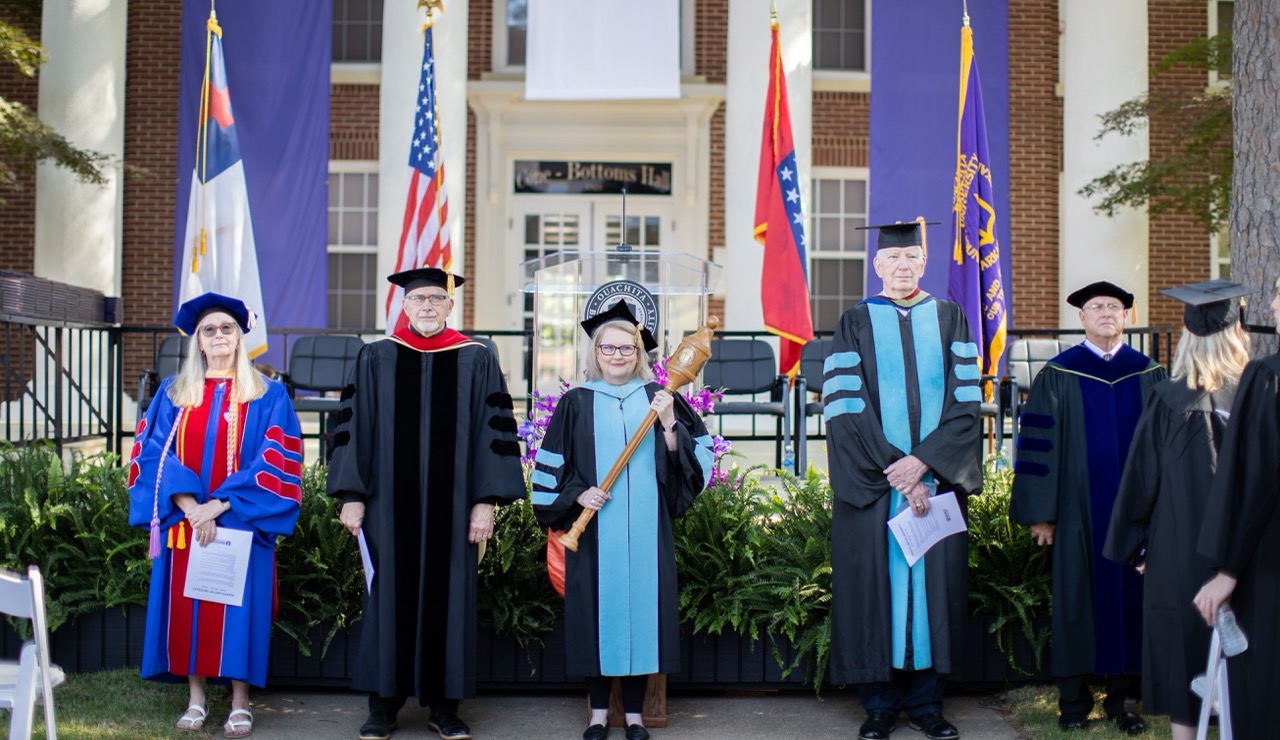Holocaust survivor tells her story at Ouachita
November 21, 2008 - Brooke Showalter
Rosa Hirsch Blum entered McBeth Recital Hall Nov. 18 to a standing-room-only crowd
of Ouachita Baptist University students, faculty and staff. Members of the Arkadelphia
community added to the packed audience, which Dr. Kevin Motl described as “an embarrassment
of riches.”
Blum was invited by Motl, associate professor of history at Ouachita, as a guest of
the history department to visit campus in conjunction with his senior seminar class
studying the Holocaust. Originally from Romania, she is one of fewer than 500,000
living Holocaust survivors and has been involved with the Dallas Holocaust Museum
and Center for Education and Tolerance. She moved to Dallas in 1950, six years after
entering Auschwitz-Birkenau as a 15-year-old.
After presenting a brief history of World War II and recognizing area World War II
veterans in the audience, Motl introduced Blum.
“Everything that I will tell you is my life story,” Blum began in a thick Romanian
accent. She told her story from the German registration of the Romanian Jews, what
she called “the beginning of everything,” to the day she was released from an Allied
hospital after being liberated by President Eisenhower’s Fourth Army.
Blum described arriving at Auschwitz, the largest of the Nazi extermination camps,
saying, “We had a reception like you would never believe. … Music was playing on one
side, and on the other side the gypsies were performing.” She added, “My spirit was
very high that day. We [had] arrive[d] to our destiny.”
It did not take long for Blum to realize the camp was not the destination—or destiny—for
which she had hoped. After seeing a young mother and her newborn triplets taken away
with a vehicle full of corpses, she said she realized, “Now something evil goes on
here. I was very, very disturbed.” That was the last day she saw many of her family
members, including her mother and grandmother.
Blum continued her story, telling how luck, cunning and the kindness of strangers
contributed to her survival. “It was unlivable,” she said of conditions in the camp.
“I mean it was unreal.”
Following Blum’s lecture, members of the audience were invited to take part in a question-and-answer
session with Blum. When asked if she would ever like to return to Auschwitz, she replied,
“I would like to go back one time just to say memorial services after my parents.
There’s nothing else for me there.”
As Blum closed the question-and-answer portion of the lecture, she said, “I am very
happy to be here to help the youth not make the same mistakes we did.” She added,
“It was not time for me to go. My time is not finished here on earth. … God kept me
here for some reason.” Her hour at Ouachita ended with a standing ovation.
by Brooke Showalter
You Also Might Like
Ouachita reports Spring '26 enrollment, led by 50% increase in graduate students
February 11, 2026Recent
Ouachita reports Spring '26 enrollment, led by 50% increase in graduate students
February 11, 2026



